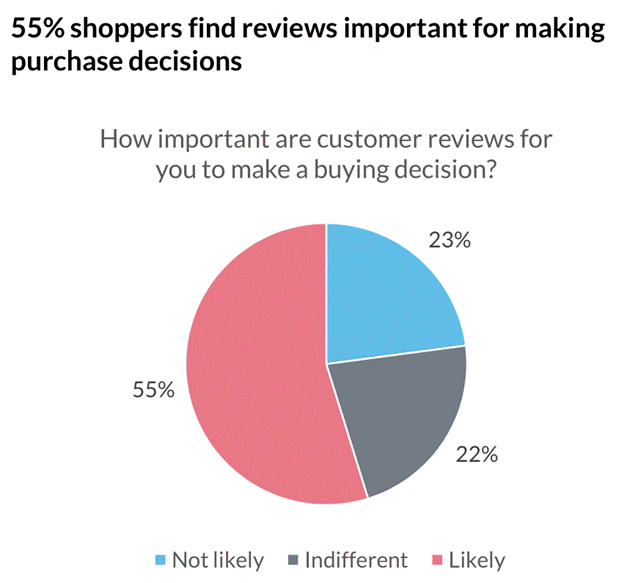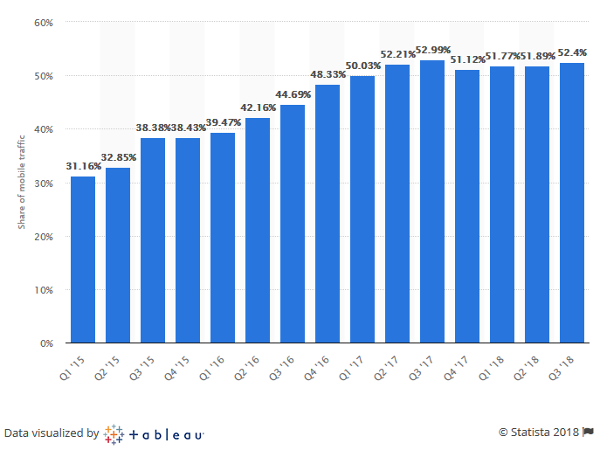
source: pexels.com
In the present world, blogs and websites are becoming essential for your digital business. Performance of your e-commerce website and application can make or break your growth efforts. Website monitoring alerts you in real time regarding every kind of discrepancies before your customers notice it.
Today, businesses rely on their websites and this reliance is quite extensive indeed. E-commerce websites basically help in creating various touch points between the company and its stakeholders. Customers can find everything online in this digital modern age. Website performance is also highly critical for a good, satisfactory shopping experience for customers, which in turn affects loyalty, revenue, and reputation of your brand.
Importance of your web-assets
We live in an information and knowledge economy that values finding information in an increasingly digital and web world.
- Google can penalize your search results ranking if it will find your site slow and produces a poor and bad experience for the user.
- In numerous industries, over 90% of purchasing decisions start with the initial online search.
The above-mentioned facts highlight the supreme importance of managing and looking after your website on a regular basis. It ensures your website is both online and performing well. If you are not easily and readily found on searches, because your website is down, you lose customers, sales, and credibility.

source: neilpatel.com
Online customers expect everything to be seamless, from searching to buying a product. If there is a snag in any of the processes, the consequences can be difficult to rebound from, both for the name of your brand and bottom line.
An online store can lose more than tens of thousands of dollars in sales in around 7 hours of downtime. That’s why it is highly imperative to use a service which keeps a steady check on the uptime of your e-commerce website.
Errors Occur
These days, the demand for online shopping is 24 x 7. At times, often during holiday season sales, for example, there is an increase in the traffic and that is the real test of how your website and your high converting e-commerce pages perform. In such scenarios, if the customer faces an unusual delay in loading or encounters a 404 error, it will hamper the customer’s trust and subsequently your sales. E-commerce monitoring can help in dealing with such situations by constantly monitoring the performance and alerting a designated team for technological glitches. This process helps in reducing the chances of a bad shopping experience. This is where companies are increasing the role of mobile, making application to ease the access to their business.

source: statista.com
Top reasons to monitor e-commerce website
There are countless reasons why a company wants to monitor their e-commerce website. Some of them are:
1. Satisfied Customers
If you want to build your brand, position it in the mind and heart of the customer, then the key to this is a happy and satisfied customer. Sales and repeated sale can only occur once you have a bigger pool of satisfied customer. It also helps in propagating a good word of mouth for the business. This holds all truer for customers who have subscriptions to the products as well as services that can access via their cell phones. Many cloud base software services need higher levels of uptime so that the customers remain happy.
However, if the downtime issues keep recurring for a long period of time, then chances are highly likely that your customers may make a move towards the peers.
2. Speed & Performance
The performance of the e-commerce website is vital. It is an important tool in achieving customer satisfaction and motivating your visitors to buy your product or services. Online customers don’t want to wait longer than 2 to 3 minutes for their liked item to load so that they can purchase it. If these customers have to wait for a longer period of time because of the speed of the website, they will probably leave the website and may never come back again. They will also make sure to create a negative word of mouth of the company, which will lead to a huge loss for the company.
3. Reputation
In the current world, where there is an extremely competitive race going on among the companies to take the lead over each other. Reputation has a lot of weight in such a scenario. It is an everyday battle to prove your metal as an online company. If a potential customer visits your website and takes with him a negative feedback, this can be harmful to the name of the firm. You need to make sure everything is streamed line and functioning to its optimum level. The synergy between various segments of your e-commerce website should be evident in the first look to the site.
4. The overall image of the business
Your website is the reflection of your e-commerce business. Your impressions are created in the first look of your site. This makes it a significant facet to the overall business. Whether you have a brick & mortar business, or you have a click & mortar business, a good brand image is fundamental.
One common thing that normally hampers a business outlook is frequent downtime issues. It can severely jeopardize the standing of your online business. Constant monitoring your e-commerce website is the best possible way to prevent unwanted hazards and protect the image of your online existence.
5. Performance Evaluator
E-commerce website monitoring helps in benchmarking the performance of your respective web application and business. This evaluation can be done with a suitable frequency, depending upon the nature of the business company is into. Different industries have different requirements for evaluation. Benchmarking helps in analyzing and comparing the results of the business with the industry and peer’s performance. With all the data easily available, you can easily identify the areas of development and improvement. Once the areas of improvement are identified, a developmental strategy can be created to fill in the loop holes and tap the market with full force.
A Performance Management Strategy will help you in balancing risks and produce a user experience that not only meets customer expectation but exceeds them. E-commerce monitoring is a helpful tool and mechanism to deliver such experience to your precious customers and prospects, and it is one of the things that will help you stand out from other players in the market.


 Copyright 2000-2025, WebSitePulse. All rights reserved.
Copyright 2000-2025, WebSitePulse. All rights reserved.